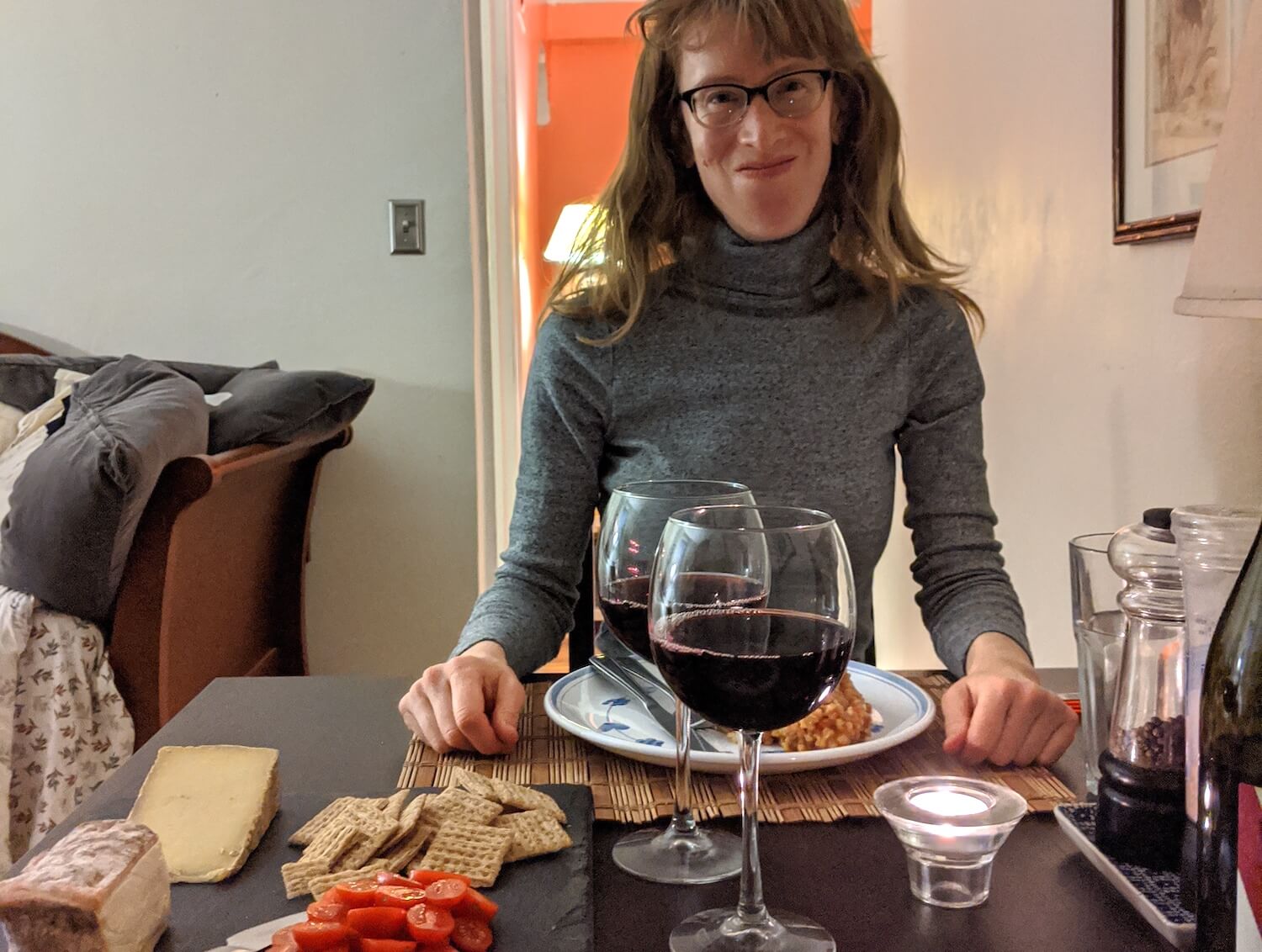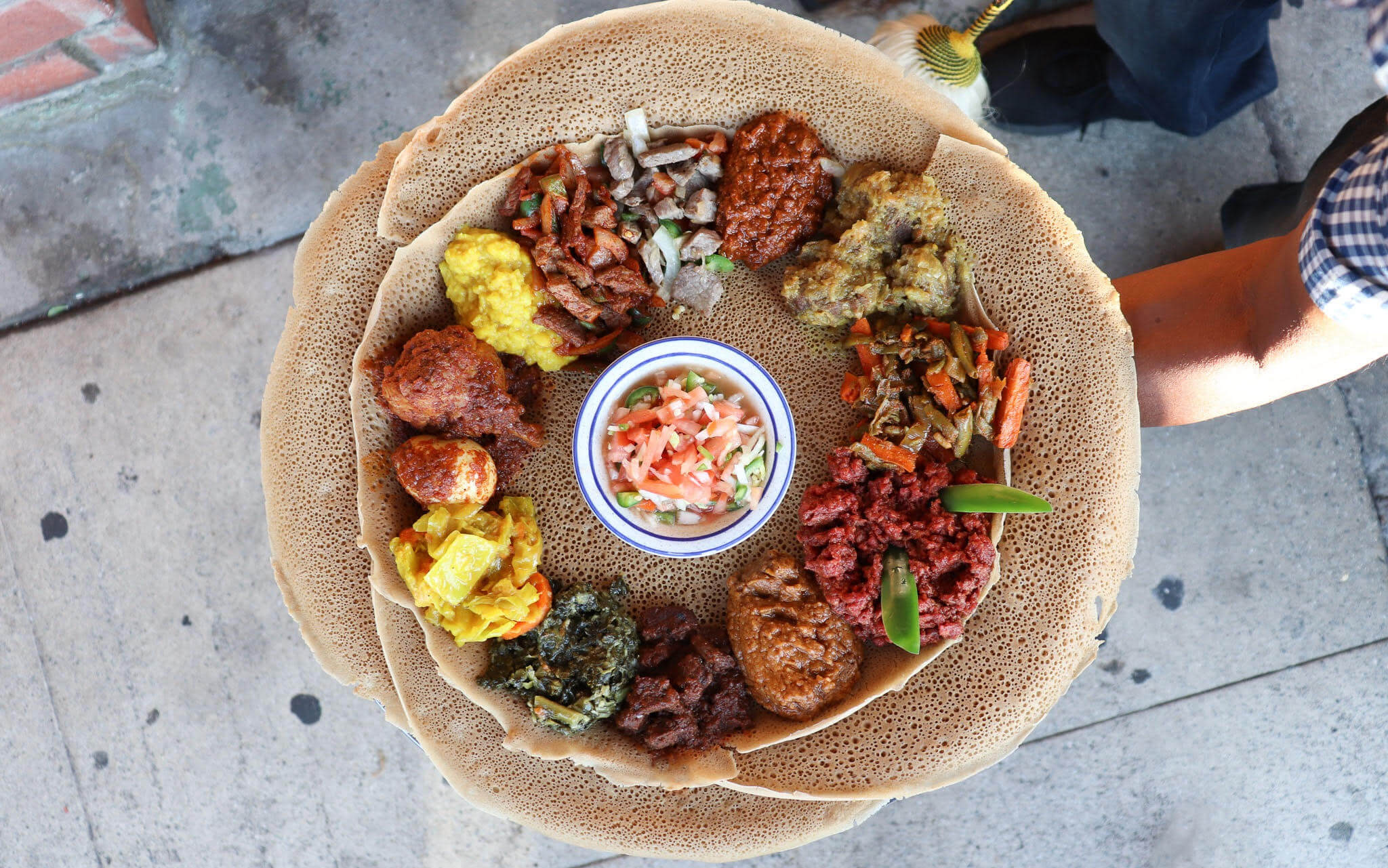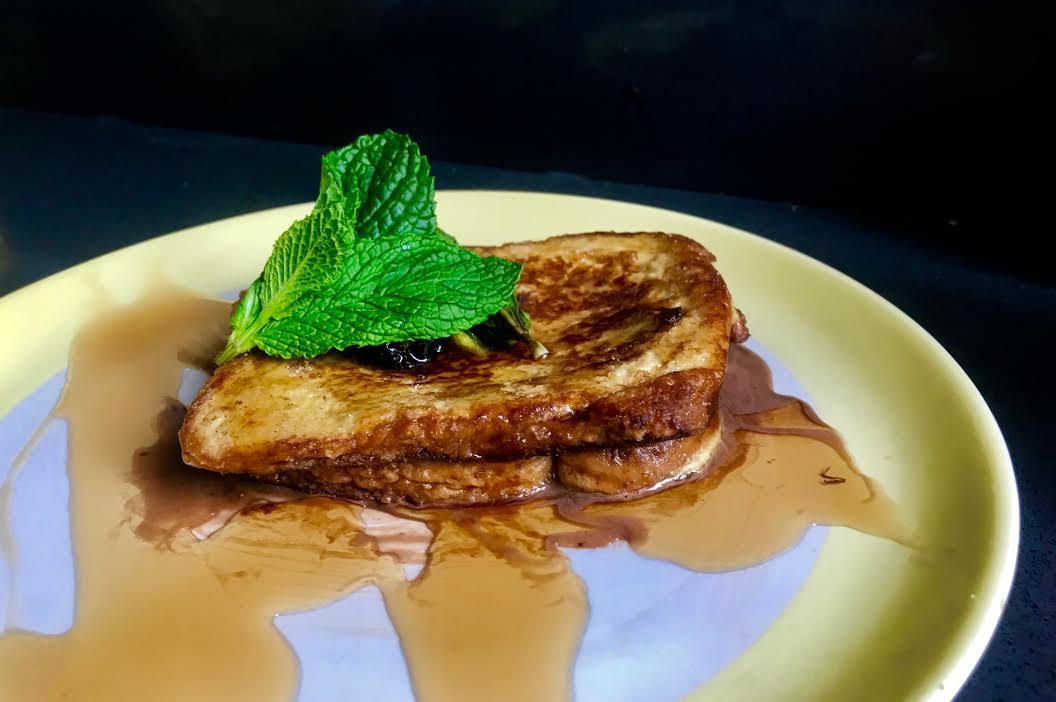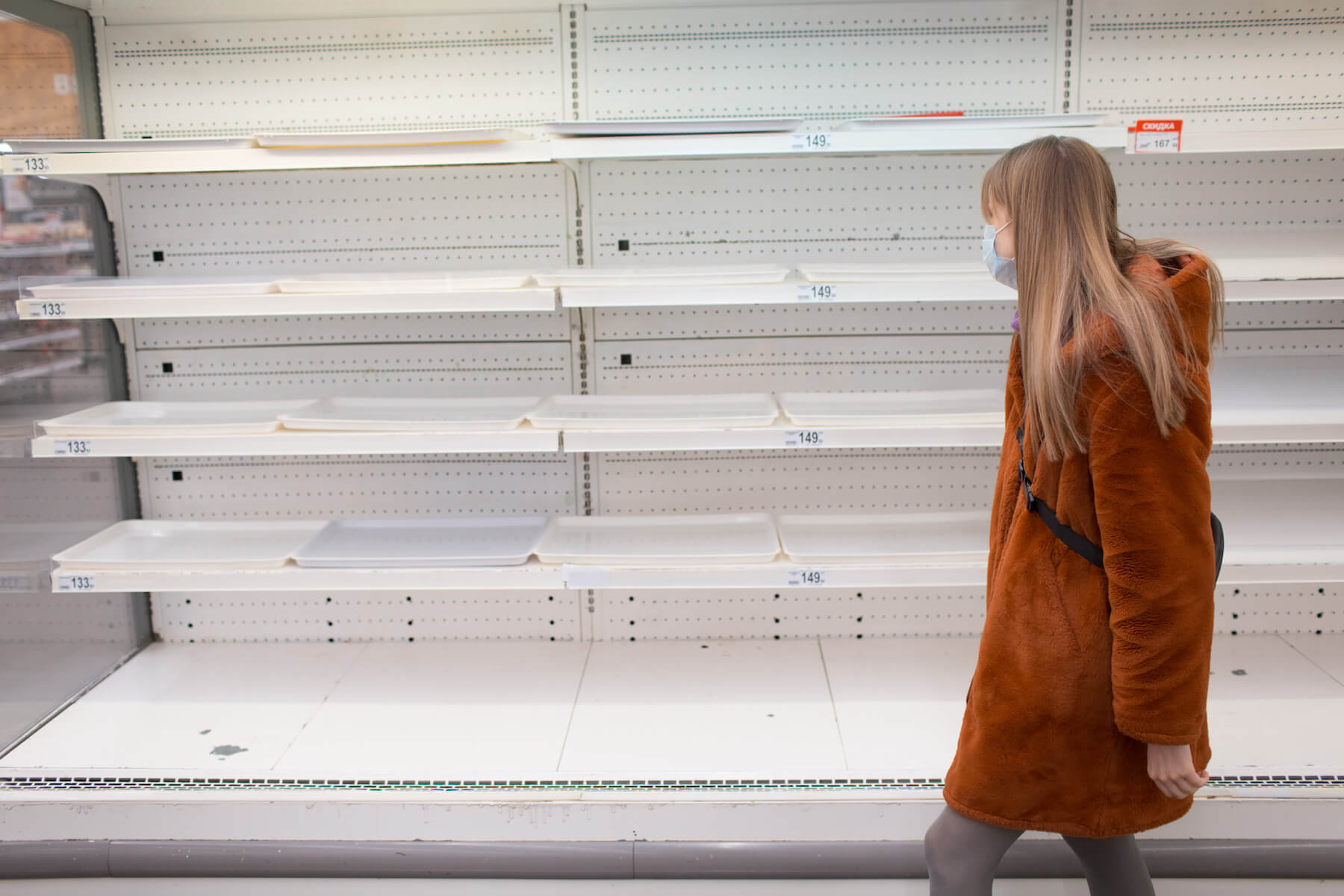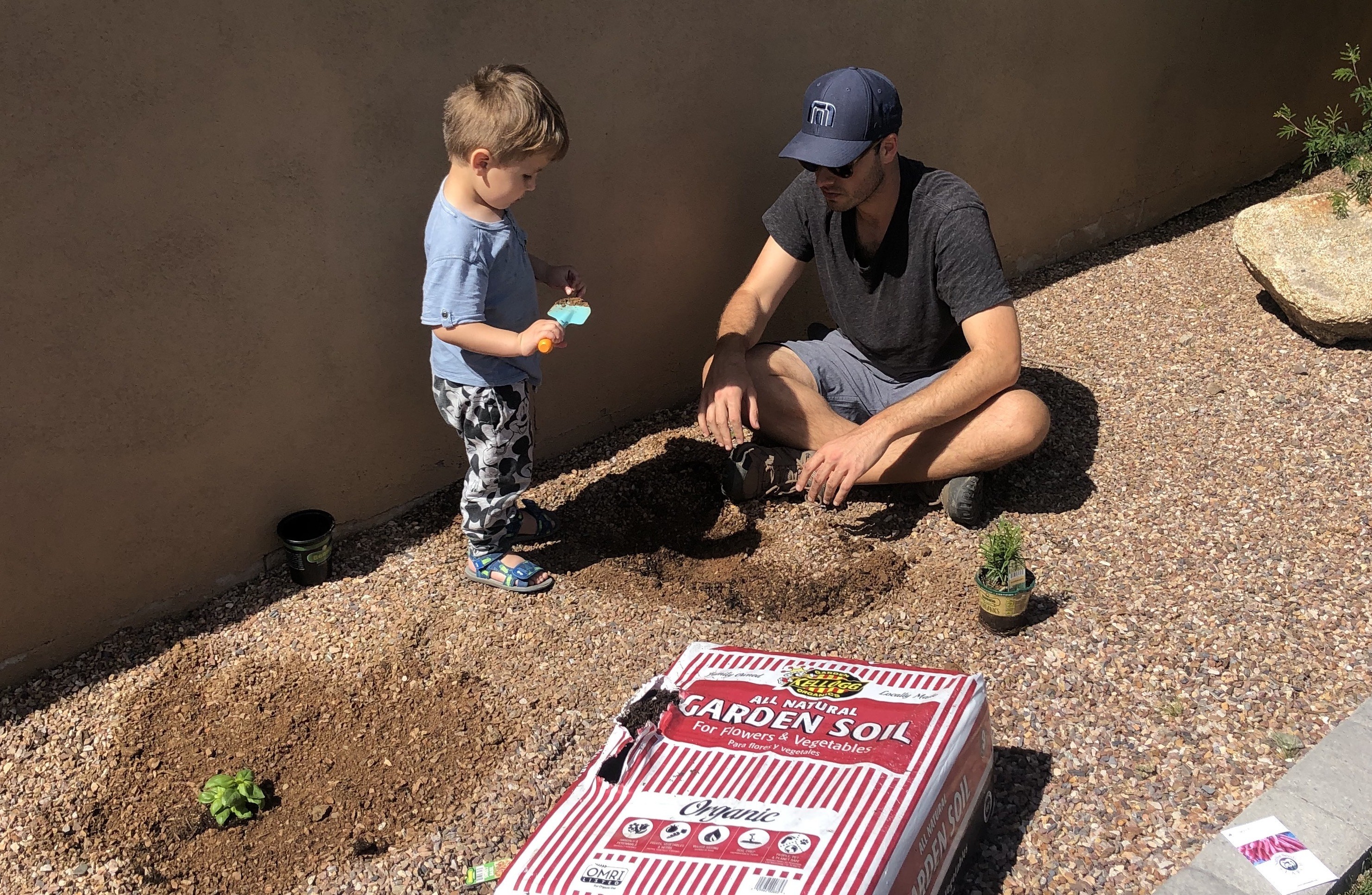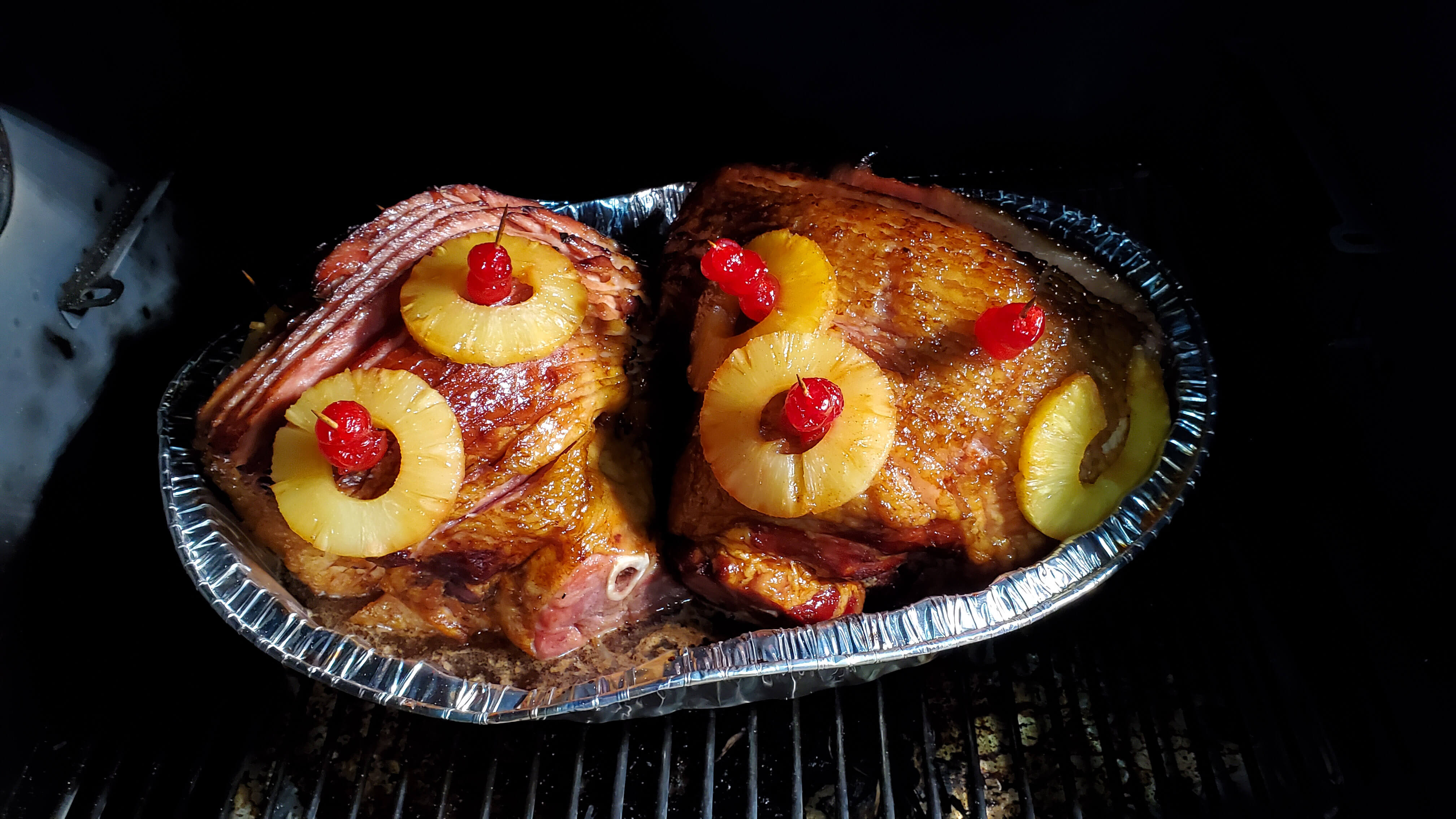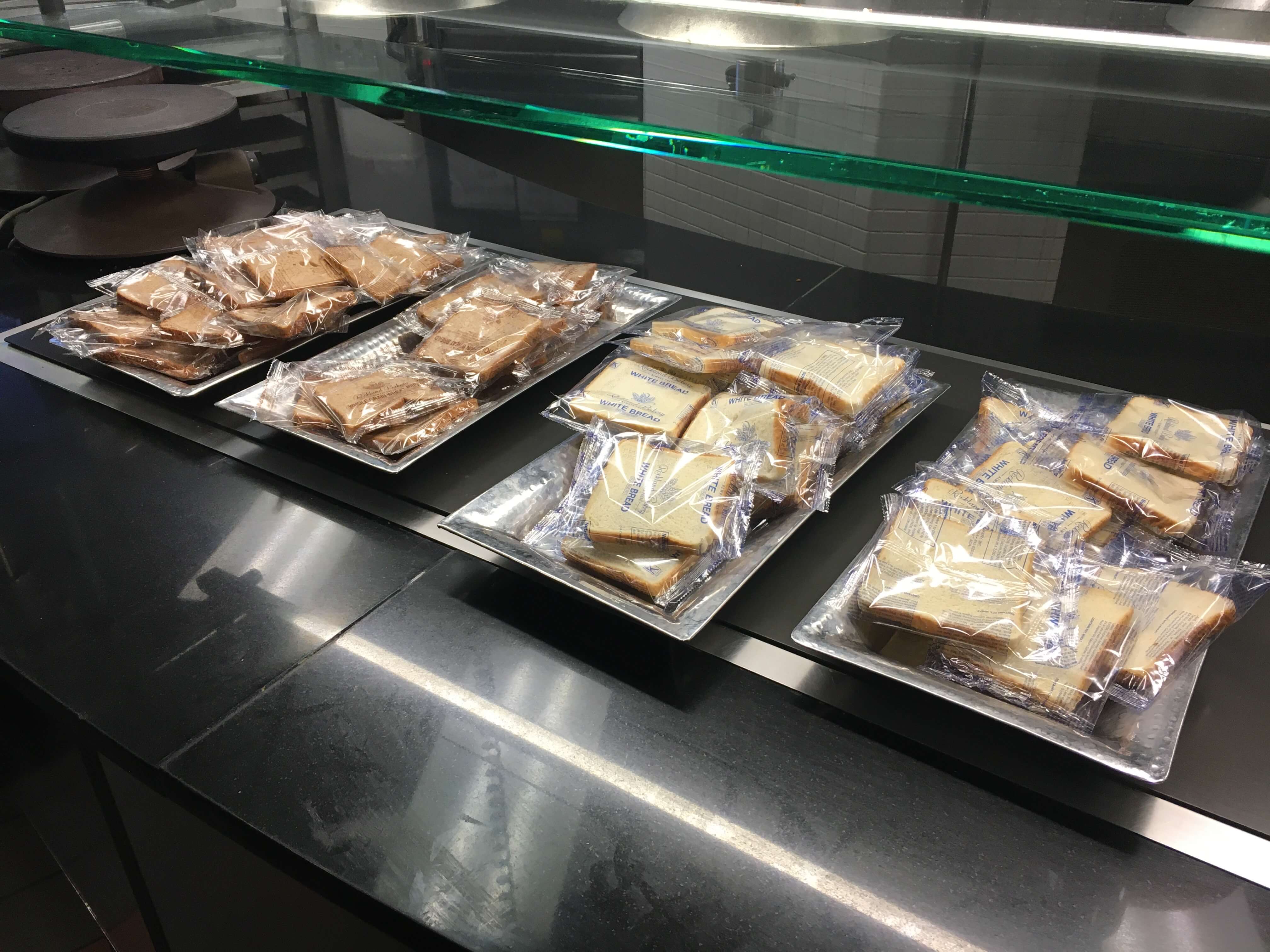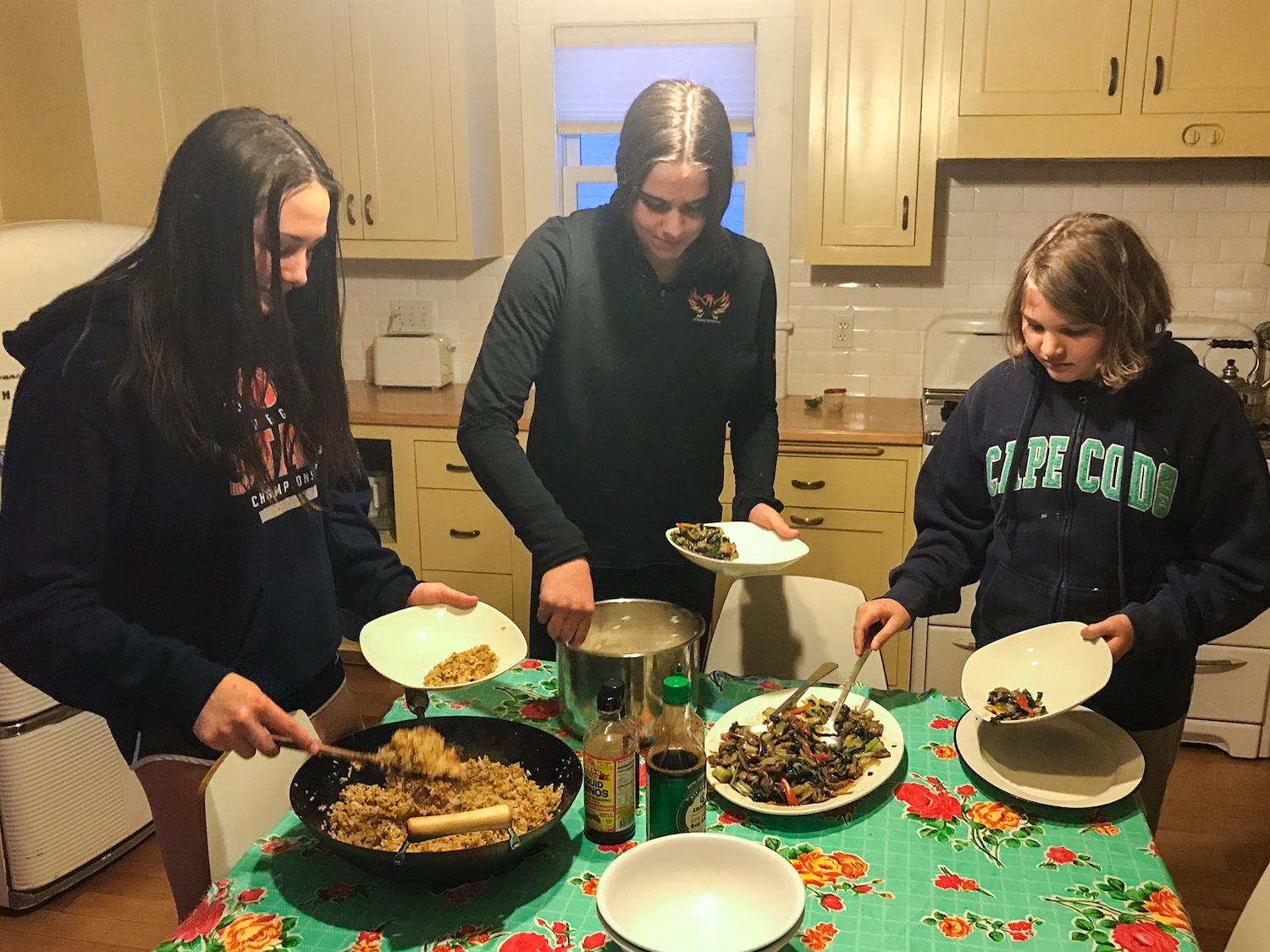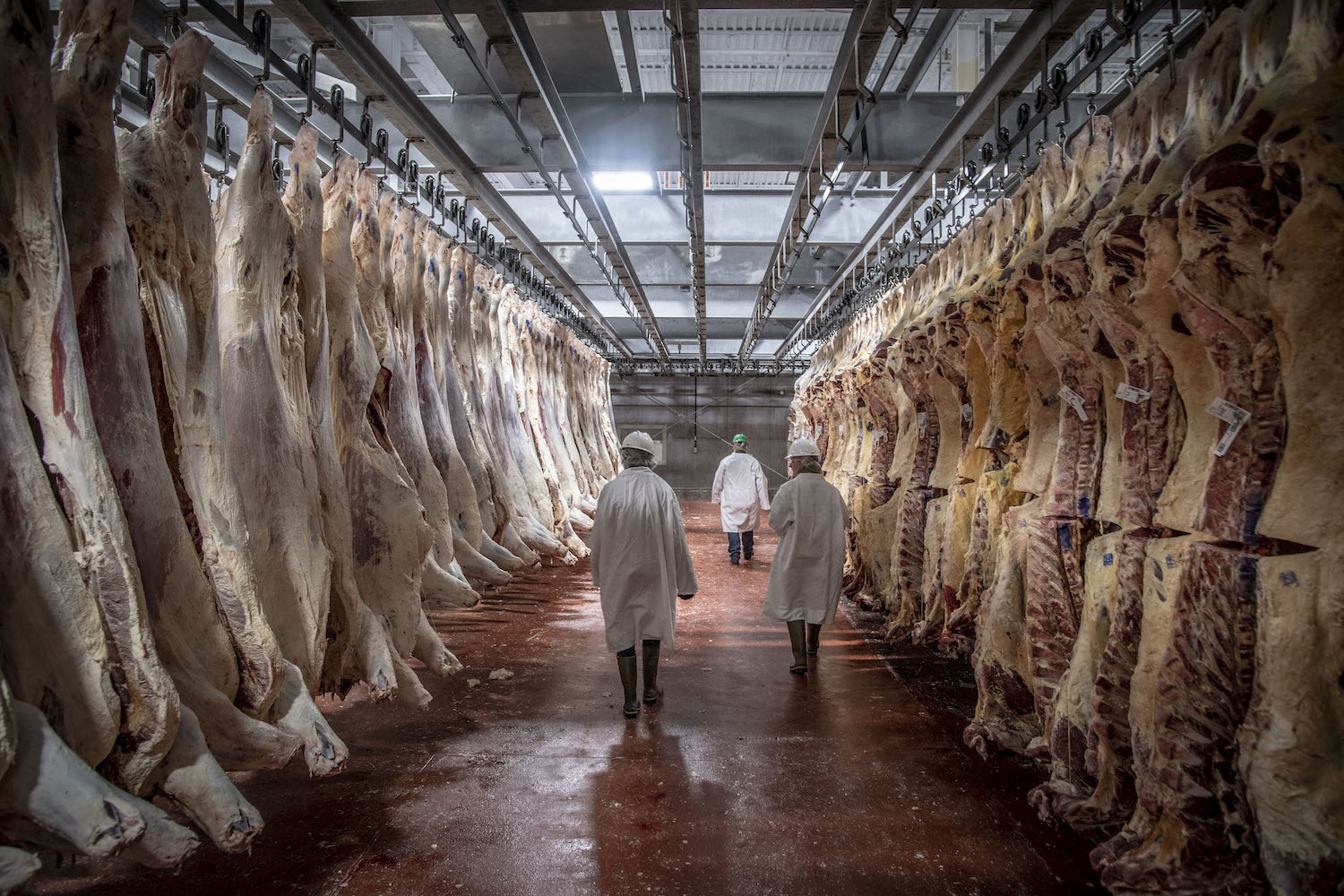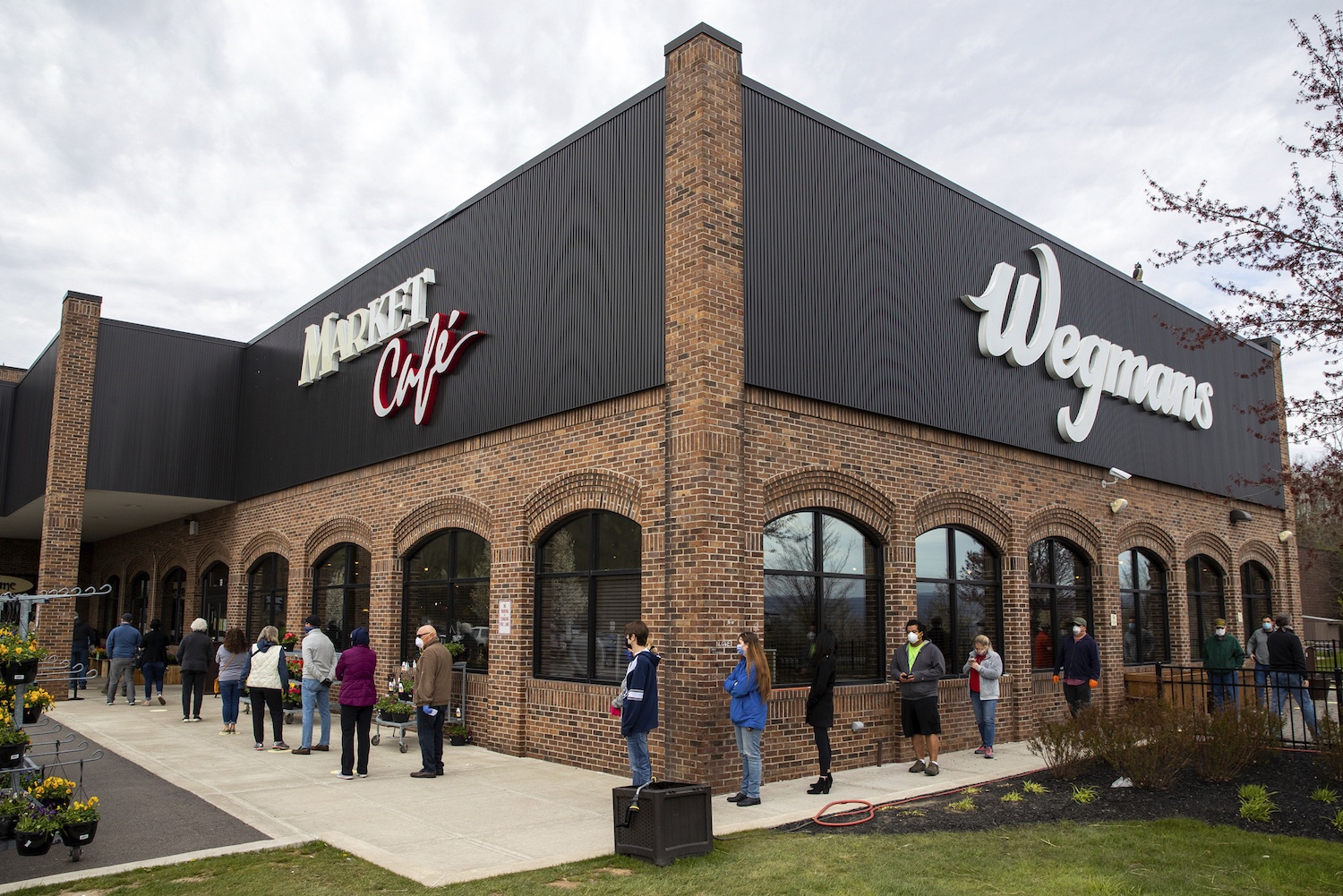
Christopher Dolan/The Times-Tribune via AP
On being humbled in the supermarket.
I was always going to the grocery store. When I had my wisdom teeth pulled years and years ago, the first thing I said when I came out from under the anesthetic was, “Let’s go to Wegmans.” Part of it is that in this city in the middle of Pennsylvania, there isn’t much else to do. But it goes deeper, I think. Those stacks of gleaming apples, the towering bins of cashews and pistachios, the aisle of beans, these things, at least for me, key into some utterly primal reward circuit.
I know what I should do. I should go to the store once and buy enough to tide us over for a couple of weeks so we can hole up and stop seeing people. But I don’t. I can’t keep away from the grocery store.
Yesterday, I run across town for an errand—I need to put out the recycling at my mother-in-law’s—but my path bends and pretty soon I’m pulling into the lot at Wegmans. I’ll just get a few bags of rice. It can’t hurt to have a few bags of rice. The end times are all asteam with rice.
If you want to figure out what’s important to you, you’re supposed to play that mental game where you pretend there’s a fire in your house. Grocery shopping is now a version of that game.
Even the lot is ominous. In the early days of the pandemic, it was full to the brim. Now it’s empty enough that I can get a close spot. But along the perimeter, where the employees park, there is hardly a space available.
This particular Wegmans, my Wegmans, is entered via a long, tall glass foyer. You go in through a pair of sliding doors at either end, get one of the carts or baskets lined along the wall, and from there you’re deposited right into the middle of the fresh produce section: cartons of blueberries and blackberries and strawberries to your left, serried ranks of navel oranges to your right, all pulsing under the glow of halogens suspended 20 feet above. This is what I’ve come for, to see the food and the people gathering it.
I get grapes first, then oranges even though I know vitamin C is a complete crock of shit, green beans, wax beans, flowers for my mother. On my last visit, the apples had been cleaned out. A man in flannel stood next to me looking at the empty bins. “Do apples cure coronavirus or something? Sheesh.” But now they’re back. I get apples. I get yogurt (2 per customer) and toothpaste (1 per customer) and ultra-pasteurized milk (2) and hand lotion (no limit, I go wild) and a bag of dog food so large that if it were to fall on my dog it would kill him. I get rice (2). I don’t even bother looking for bread. It’s a wasteland over in the bakery section—every time I check, it looks like the end of a tailgate, empty bun bags fluttering from the shelves. A woman pushes her cart down the aisle wearing fur lined leather gloves. There seem to be exhausted managerial types with clipboards everywhere.
There are those, like my mother-in-law, who will face the hypothetical apocalypse with a can of Campbell’s soup in each hand. There are those who emerge, flanked in mist, from the frozen foods section.
If you want to figure out what’s important to you, you’re supposed to play that mental game where you pretend there’s a fire in your house. What do you get first? The children, the dog, your grandmother’s jewelry, the computer with your coming-of-age novel on it. Grocery shopping now is a version of that game. There are those, like my mother-in-law, who will face the hypothetical apocalypse with a can of Campbell’s soup in each hand. There are those who emerge, flanked in mist, from the frozen foods section. One man requires a great deal of ground beef. But it is the woman with the cart full of 20 oz. Pepsi bottles, Pepsi and nothing else, who gives me pause.
I am frozen almost at the image that arises of this woman, secure in her living room somewhere with her stash of cola happily stored away in some locked closet as the world goes to hell. The emotions come so quickly I can hardly keep track of them. I’m amused at first, then disgusted, then disappointed, then angry. This is what’s wrong with this country, they don’t even know when to buy dried beans, they’re going to spend the apocalypse giving themselves diabetes, somehow this is her fault. But then—we’re neck and neck now, passing the greeting card aisle—she smiles at me, and I remember that I have a 40-pound bag of dog food on my shoulder and a basket full of lotion, and I remember that one of us might not be here next week and no one knows which one.
It is so good to be humbled at the grocery store.
At the register, the payment terminal asks me if I am part of the Shoppers Club. Indeed I am.
